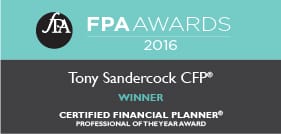07 5440 5794
|
So you've got a little spare cash. Not sure whether you should repay your mortgage sooner and pay extra in to super? A lot of people wait until their home loan is paid off before investing more in super. Is that the right strategy in the current market? Could you be better off when your retire if you make additional super contributions instead? It's one of the most common questions we get. Here are some rules of thumb you can follow to work out what's right for you.  Photo by micheile henderson on Unsplash Why SuperThere are two key reasons why topping up your super could be a better option. The first is that home loan repayments are usually made with after-tax money. Alternatively, concessional super contributions can be made with pre-tax dollars (if you’re an employee) or claimed as a tax deduction (if you’re self-employed and meet other eligibility requirements). Learn more about Concessional Super Contributions here. These concessions can help you use your surplus cash flow more effectively. The other reason is the amount of concessional super contributions you can make each year is far lower than it used to be (currently limited to $27,500 a year). As a result, it has become much more difficult to make large tax-effective super contributions just before you retire. To achieve the retirement lifestyle you desire, you may need to make additional super contributions earlier than you had planned. That way you can take greater advantage of the contribution cap over the remainder of your working life.  Photo by Mediamodifier on Unsplash Why the mortgage?These are a few of things you need to weigh up. Consider the size of your loan and how long you have left to pay it off A dollar saved into your mortgage right at the beginning of a 30-year loan will have a much greater impact than a dollar saved right at the end. The interest on a home loan is calculated daily The more you pay off early, the less interest you pay over time. In a higher interest rate environment many homeowners, particularly those who bought a home some time ago on a fixed rate, will now be paying much more each month for their home. Offset or redraw facility If you have an offset or redraw facility attached to your mortgage you can also access extra savings at call if you need them. This is different to super where you can’t touch your earnings until preservation age or certain conditions of release are met. Don’t discount the ‘emotional’ aspect here as well. Many individuals may prefer paying off their home sooner rather than later and welcome the peace of mind that comes with clearing this debt. Only then will they feel comfortable in adding to their super. Before making a decision, it’s also important to weigh up your stage in life, particularly your age and your appetite for risk. Case study where contributing to super could be the best strategyBetty is 55, single and earns $90,000 pa. She currently has a mortgage of $200,000, which she wants to pay off before she retires in 10 years’ time at age 65. Her current mortgage is as follows:
Betty has spare net income and is considering whether to:
Sorry, this bit is a blur of numbers (unavoidable unfortunately!!). If you just want the bottom line, see a few paragraphs down. If you want to know how we got there, keep reading. Assuming the loan interest rate remains the same for the 10-year period, Betty will need to pay an extra $787 per month post tax to clear the mortgage at age 65. Alternatively, Betty can invest the pre-tax equivalent of $787 per month as a salary sacrifice contribution into super. As she earns $90,000 pa, her marginal tax rate is 34.5% (including the 2% Medicare levy), so the pre-tax equivalent is $1,201 per month or $14,418 per annum. To work out how much she’ll have in super in 10 years, we’re using the following super assumptions:
The Bottom Line Betty will have an extra $167,484 in super. Her outstanding mortgage at that time is $129,062, and after she repays this balance from her super (tax free as she is over 60), she will be $38,422 in front. Of course, the outcome may be different if there are changes in interest rates and super returns in that period. The super rules can change too!! Case study when paying off the mortgage may be the best strategy32 year old Guy and 30 year old Emma are a young professional couple who have recently purchased their first home. They’re both on a marginal tax rate of 39% (including the 2% Medicare levy), and they have the capacity to direct an extra $1,000 per month into their mortgage, or alternatively, use the pre-tax equivalent to make salary sacrifice contributions to super. Given their marginal tax rates, it would make sense mathematically to build up their super. However, they’re planning to have their first child within the next five years, and Emma will only return to work part-time. They will need savings to cover this period, as well as assist with private school fees. Given their need to access some savings for this event, it would be preferable to direct the extra savings towards their mortgage, and redraw it as required, rather than place it into super where access is restricted to at least age 60. What if you are already using your concessional super cap?You can still put money in to super, even if you are already using your Concessional Cap of $27,500 per year. You can contribute after tax dollars up to a limit of $110,000 per year (known as the non-concessional super cap - conditions apply, learn more here). With interest rates the way they are, the maths is pretty similar for both options. By that I mean, if you chose to repay debt with spare cash, your loan would reduce at about the same rate as your super would increase if you choose to put that cash into super. Does that make sense? Repaying debt is considered a lower risk strategy though, as there are no guarantees about future investment returns. What is you have an investment loan?Gee, this is where it gets even more complicated!! What it means is that the benefit to you of early debt repayment could be less, because you can claim the interest as a tax deduction (and getting some money back in your tax). To offset this, your investment generates an income, which you have to pay tax on. Argh!! So many scenarios here, best to seek advice if you are not confident to work through the various issues yourself. Key Issues To ConsiderWill you need access to any of the money before you retire? While making additional contributions could help you retire with more super, it’s important to consider whether you’ll need access to the money before you meet certain conditions. A key benefit of making extra home loan repayments is the money can usually be accessed at any time through a redraw facility or offset account. How much investment risk is right for you? Making additional mortgage repayments is considered a low risk financial strategy and provides savings through lower interest costs. It may be more appropriate for you. But if you’re prepared to take a moderate degree of investment risk, making additional concessional contributions could be worthwhile. The Bottom LineOf course, the mathematics is not the only issue. What about your emotions and stress levels? Anyone who has paid off a mortgage will certainly tell you how great that feels. Yee-hah!! And I have not met anyone yet who does not like the tax benefits that come from superannuation contributions or watching the miracle of compound interest at work. The key message here is to have a plan to eliminate debt by, or at, retirement. Key Thoughts
Whenever you're ready....here are a few ways I can help you get on track to a stress-free retirement. 1. Follow us on Facebook and Twitter and sign up to our regular emails updates. They are great places for great ideas. 2. Complete your Financial Readiness quiz It can be hard to know if you’re doing well with your money or not, so we’ve taken the guesswork out of it for you. Take our quick quiz and work out if you’re doing all the right things with your money or need to pull your socks up, as well get some ideas about what you should be doing next. 3. Work directly with me. If you’d like to work with me and my team to move from stressed and frustrated to relaxed and on track, you can schedule a phone call here. You’ll find out how we can help and if we are the right fit for you. 20 minutes, no obligation. IMPORTANT This information is of a general nature only and may not be relevant to your particular circumstances. The circumstances of each individual and investor are different and you should not act on this information without speaking to a financial, tax or legal adviser, who can consider if the financial product and strategies are appropriate for you. To the extent permitted by law, no liability is accepted for any loss or damage as a result of any reliance on this information. See full Terms and Conditions here.
Case studies in this publication are for illustration purposes only. The investment returns shown in any case studies in this publication are hypothetical examples only and do not reflect the historical or future returns of any specific financial products. Past performance is not a reliable guide to future returns as future returns may differ from and be more or less volatile than past returns. Any general tax information provided in this publication is intended as a guide only and is based on our general understanding of taxation laws. It is not intended to be a substitute for specialised taxation advice or an assessment of your liabilities, obligations or claim entitlements that arise, or could arise, under taxation law, and we recommend you consult with a registered tax agent.
Andre
10/3/2016 02:50:22 pm
Thanks for the tip on the calculator Tony. Simple and very effective.
Reply
Tony
11/3/2016 09:59:46 am
No problem Andre, there are many good calculators on the site.
Reply
Bill
9/4/2016 07:47:05 pm
Hey mate, more case studies would be good.
Reply
Billy
1/5/2016 07:10:52 pm
Thanks for the feedback Billy.
Reply
Your comment will be posted after it is approved.
Leave a Reply. |












 RSS Feed
RSS Feed

13/4/2023
4 Comments